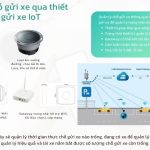
Efficient accounting and billing systems are crucial for businesses of all sizes. Whether you’re a small startup or a large corporation, managing your finances effectively is essential for sustainable growth. Without a streamlined accounting and billing system, businesses can face a multitude of challenges that hinder their financial health.
One of the main reasons businesses need efficient accounting and billing systems is to ensure accurate and timely financial reporting. With manual processes, there is a higher risk of errors and delays, leading to inaccurate financial statements and poor decision-making. By implementing a web app that automates these processes, businesses can eliminate human error and have real-time access to their financial data.
Another key benefit of efficient accounting and billing systems is improved cash flow management. Late payments and missed invoices can disrupt a business’s cash flow, causing unnecessary stress and potentially hindering growth opportunities. A web app that automates invoicing and payment reminders can help businesses stay on top of their accounts receivable and ensure timely payments.
Furthermore, efficient accounting and billing systems provide businesses with valuable insights into their financial performance. By analyzing data such as revenue trends, expense patterns, and profitability metrics, businesses can make informed decisions and identify areas for improvement. This data-driven approach allows businesses to optimize their operations and drive financial success.
Key features of an efficient accounting and billing web app
To develop an efficient accounting and billing web app, it is essential to understand the key features that make such a system effective. These features should address the common challenges businesses face in managing their finances and streamline the entire process.
1. **Automated Invoicing**: The web app should have the capability to generate and send invoices automatically based on predefined templates. This eliminates the need for manual entry and ensures timely delivery of invoices to clients.
2. **Expense Tracking**: An efficient accounting and billing web app should allow businesses to track and categorize expenses effortlessly. This feature enables businesses to monitor their spending, identify cost-saving opportunities, and generate accurate financial reports.
3. **Real-time Financial Insights**: The web app should provide real-time access to financial data, including revenue, expenses, and cash flow. This allows businesses to make informed decisions promptly and keep track of their financial performance.
4. **Payment Processing**: A key feature of an efficient accounting and billing web app is the integration with payment gateways to facilitate seamless payment processing. This enables businesses to receive payments securely and efficiently, reducing the risk of late or missed payments.
5. **Multi-currency Support**: For businesses operating globally, the web app should support multiple currencies and handle currency conversion automatically. This simplifies international transactions and eliminates the need for manual calculations.
Choosing the right accounting and billing software for your business
Choosing the right accounting and billing software for your business is a critical step in developing an efficient web app. There are several factors to consider when selecting the software that best fits your business needs.
Firstly, consider the scalability of the software. As your business grows, your accounting and billing needs will evolve. Ensure that the software can accommodate your future requirements and support your business’s expansion.
Secondly, evaluate the software’s user interface and ease of use. A user-friendly interface is crucial for efficient workflow and employee adoption. Look for software that offers intuitive navigation and clear instructions to minimize training time and maximize productivity.
Another important factor to consider is integration capabilities. Check if the software can seamlessly integrate with other systems and applications you use, such as customer relationship management (CRM) software or inventory management systems. Integration eliminates manual data entry and ensures data consistency across platforms.
Additionally, consider the software’s security features. Financial data is sensitive, and it is essential to choose software that has robust security measures in place, such as encryption and secure data storage. This protects your business and your customers’ information from potential breaches.
Lastly, compare pricing plans and determine the software’s affordability and value for money. Consider the features included in each plan and assess whether they align with your business needs. Don’t forget to factor in any additional costs, such as implementation and training fees, to get a comprehensive understanding of the software’s total cost of ownership.




